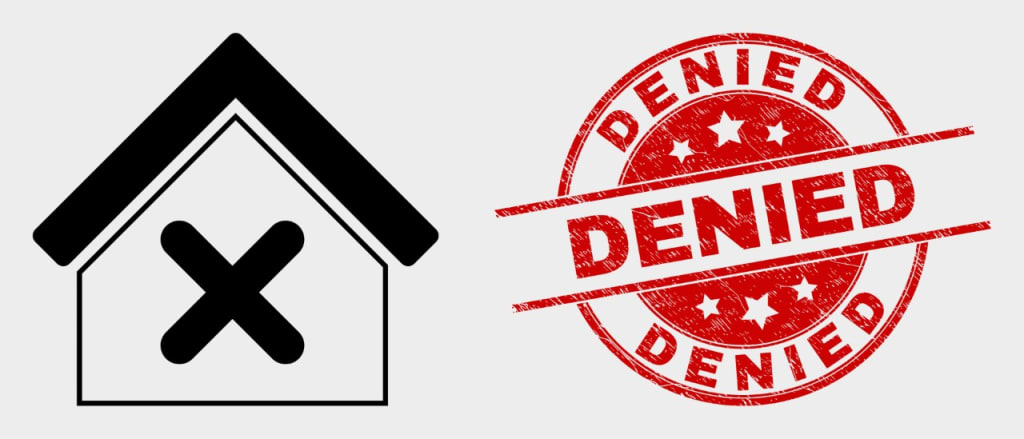10 Common Reasons Why Claims Get Denied
Best public adjuster in Broward County

Countless insurance claims, worth millions of dollars, are denied in the U.S. each year. Insurance companies are basically for-profit organizations. This means, if an insurance carrier gets a reason to deny your insurance claim, they will surely take advantage of it. Insurers usually deny claims due to exclusions in a policy. They can also deny your claim because of other reasons like nonpayment of premiums, delay in filing the claim, or suspicion of fraud. If you are concerned about your next insurance claim being denied, knowing possible reasons behind claim denial can help. Here are ten common reasons why a homeowners’ damage insurance claim are denied by insurance companies in the U.S.
1. You took More-than-Allowed Time to File the Claim: Almost all types of insurance companies need you to file a claim in a timely manner, usually specified in the policy. Most insurance policies have a particular time limit, varying from 30 to 60 days. Almost every policy has a general “timeliness” guideline. If you fail to file your claim within that time window, your insurance company may deny your claim.
2. You Failed to Give Ample Evidence: Insurers lose a substantial amount of money each year to forgery. To counteract this, insurance companies ask for solid evidence. This may include videos, images, and receipts of damaged/lost belongings to prove their dollar value. In the majority of cases, insurance companies perform due diligence, but if your company makes unnecessary demands for evidence, it may indicate that they aren’t working in good faith. In such a situation, consider hiring an experienced public adjuster to deal with your insurer.
3. You Haven’t Paid Your Insurance Premiums: If you have not paid your monthly/yearly premiums on time or you have missed paying the latest one, you insurer may deny your claim.
4. You Failed to Take Preventive Steps: Insurance companies require property owners to take precautionary measures to stop further property damage. The so-called repairs should be temporary, so that when the insurance company representatives visit you, they can see the real damage.
5. Your Damage is a Policy Exclusion: Every insurance policy has some exclusions. For example, most homeowners’ policies don’t cover flood damage. If any damage to your property is because of an excluded event, then your claim may be denied by your insurer. Remember that your insurer may argue that all your damage is the result of the excluded event, even when the bulk of the damage wasn’t due to that event. Hence, in such a tricky situation, it is best to hire an established public adjuster.
6. The Damage was Deliberate: Property owners cannot damage their own insured property intentionally and expect later to cover the losses with their policy. If your insurer finds that the damage to your property is negligent, criminal, or deliberate, then they may deny your claim.
7. You Failed to Give Property Information to Your Insurer: Insurance companies examine your home, determine risks to your property, and accordingly, charge premiums. For instance, if you home has old electrical wiring that you haven’t upgraded for decades, it is likely to up the risk of fire and therefore, your insurer should ideally be informed about it. If you fail to disclose such information to your insurer, they may deny your claim.
8. You Provided Your Insurer with False Statements: You cannot expect the outcomes in your favor by giving false damage-related statements to your insurer or public adjuster. You may have a rightful claim, but is can be denied by your insurer if they find you making false statements about specific aspects of your claim. Always speak truth to your insurer. Since all insurance companies have a specific fraud prevention system in place, the truth will eventually be revealed.
9. The Damage is lower than Your Deductible: Suppose, your residential property has $1,900 of damage and your deductible is $2,500, then your claim will not be denied, but at the same time, you will not get any payment. Your insurer will not pay you under your policy if your deductible is more than what is required to cover the cost of replacement or repairs. However, you should get such repairs done or else, your next claim might be denied due to lack of maintenance to a preexisting issue.
10. You Insurance Policy has a Cap: Most insurance companies set a cap for the monetary value of every item. In case of loss or damage, your insurer will compensate you only up to that cap. For instance, if your wedding band, worth $10,000, gets stolen and your policy has a cap of $5,000 for jewelry items, then your insurer will give you $5,000 as compensation, regardless of the actual dollar value of that band.
What to Do If an Insurance Claim Gets Denied
While insurance companies in the U.S. deny thousands of claims rightfully, each year. But, they may also deny several claims wrongfully too. In case your insurer has denied your claim or offered a settlement amount that is less than what you truly deserve to cover your losses, then you have the right to fight back.
Your insurance company may decrease or deny your claim altogether because of any of the reasons above. If you think that none of the above reasons had actually occurred and you can prove the case, then your insurance company may reverse the claim denial.
An experienced public adjuster would surely come in handy as these professionals work on your behalf and can help you obtain the maximum settlement amount possible. Stats says that a professional public adjuster can up your payout by up to 270%. And in some cases, a public adjuster could be the difference between having your property damage claim denied or approved.





Comments
There are no comments for this story
Be the first to respond and start the conversation.